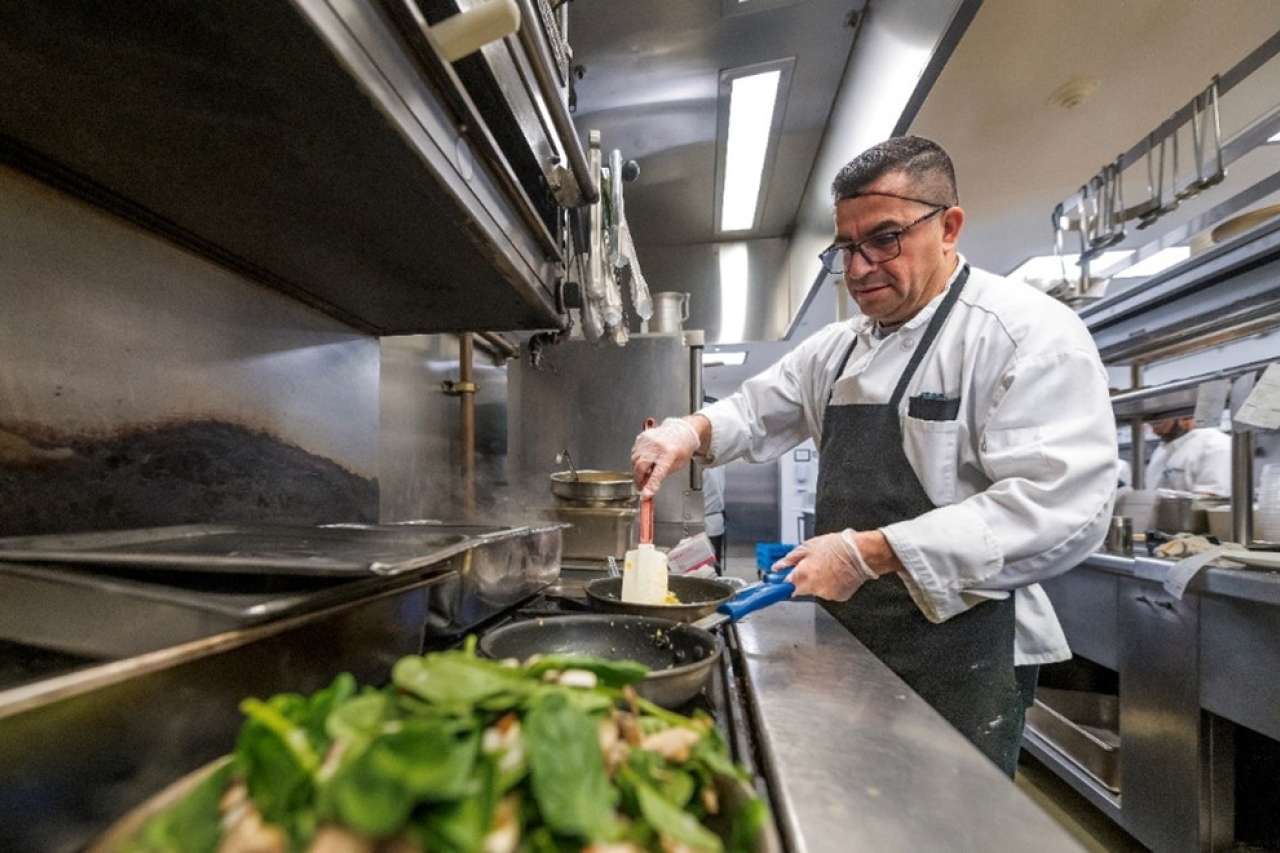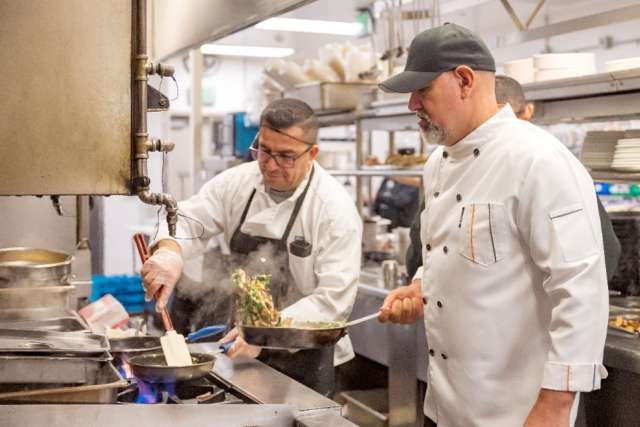Amid the familiar sounds of sizzling pans and the rich aromas of spices, UCLA Health dining services staff are embracing a significant shift in food preparation as construction continues on UCLA’s new neuropsychiatric hospital in the Mid-Wilshire neighborhood of Los Angeles – mastering the art of cooking in a fully electric kitchen.
“We’re not just transitioning from gas to electric grilling; we’re modeling the change necessary to transition into a new way of life,” said Genesis Robinson, administrative director of food and nutrition services at UCLA Health. “We are contributing to a mission that aims to make our planet a healthier place. By doing the work to reduce carbon emissions, we are making a positive impact on the lives of our families, our patients and the communities we serve.”
The new hospital will relocate and expand the Stewart and Lynda Resnick Neuropsychiatric Hospital at UCLA. It will include what is believed to be the first all-electric hospital kitchen in California. The kitchen is expected to be completed six months prior to the full hospital opening in 2026.
The preparation period before doors open to the public will allow dining services staff to test menu items and develop processes conducive to an all-electric environment, Robinson said.
As part of the transition, UCLA Health is working closely with vendors, industry experts and Southern California Edison. The utility is offering a test kitchen where dining services staff will train on the types of electric equipment to be installed in the new hospital’s kitchen. Cooking times and temperatures may differ on electric versus other equipment.
UCLA Health Executive Chef Gabriel Gomez said there will be a learning curve but that the team is on board to embark on the journey. Electric ranges, charbroilers and skillets are a few pieces of equipment Gomez has requested for the new kitchen.
As part of his research, Gomez visited Wolfgang Puck’s restaurant Spago in Beverly Hills, which uses an all-electric kitchen. “Their installation was a lot easier because their production is on a much smaller scale than what we’re trying to do,” he said.
Chefs at Ronald Reagan UCLA Medical Center (which also houses UCLA Neuropsychiatric Hospital and UCLA Mattel Children’s Hospital) prepare an average of about 6,900 meal equivalents each day for patients, staff and visitors.

Top of mind for Gomez is to ensure quality and consistency. In terms of training, once engineers have installed and connected the equipment, vendors will hold an in-service where they will show Gomez how to operate the equipment and he will then train staff.
The all-electric kitchen underscores a commitment to sustainability by UCLA Health, UCLA and the entire University of California system. From the careful selection of building materials in accordance with the Buy Clean California Act (BCCA), to energy and water use, waste management, and the reduction of fossil fuel use, the neuropsychiatric hospital project emphasizes environmentally conscious solutions that demonstrate best practices around sustainable design.
Suzanne Kiely, project manager with UCLA Health real estate, planning, design and construction, noted that the former community hospital acquired by the university in January 2021 had extremely old and inefficient mechanical and building systems. Those systems, she said, are being replaced with all-electric heating and cooling systems and a more energy-efficient building envelope. Natural gas service to the project site was eliminated in early 2023 at the start of construction.
Part of Kiely’s role is coordinating and collaborating with UCLA Capital Programs as well as UCLA and UCLA Health sustainability offices.
“The approach we've taken with the project is very holistic, and understanding the connection between sustainable practices, the environment, and human health and wellness is key to the process,” Kiely said.



